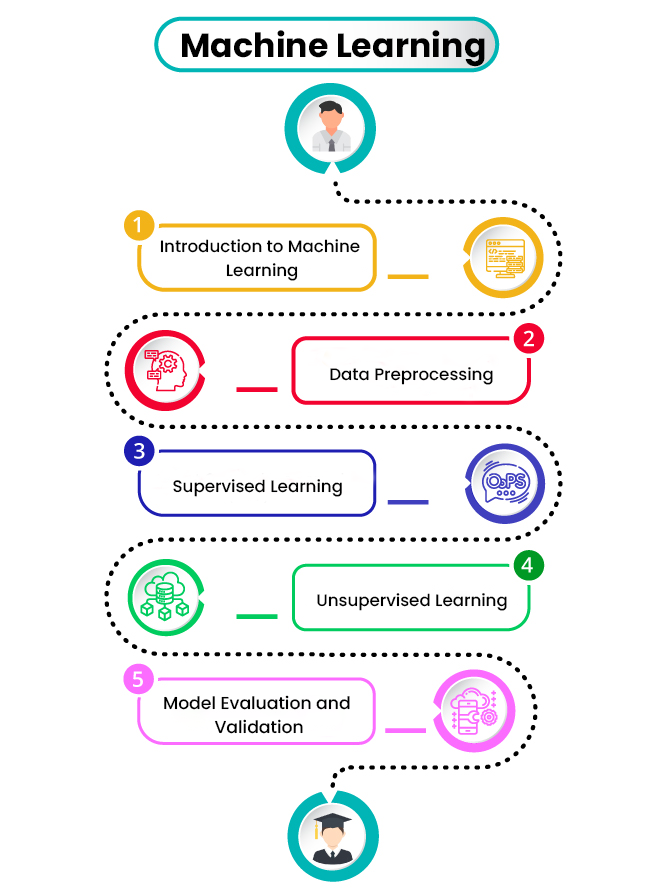Curriculum in Machine Learning
Introduction to Machine Learning
Data Preprocessing and Exploration
Supervised Learning Algorithms
Unsupervised Learning Algorithms
Model Evaluation and Validation
Ensemble Methods and Model Selection
Deep Learning Fundamentals
Deep Learning Applications
Reinforcement Learning
Advanced Topics in Machine Learning
Curriculum in Machine Learning
Machine Learning Is Preferred by Over 35% of Developers. Machine Learning is the most widely used and in-demand programming language in the IT industry.
- Overview of Machine Learning
- Types of Machine Learning algorithms
- Applications of Machine Learning in various domains
- Introduction to Python and popular ML libraries
- NumPy, Pandas, and scikit-learn
- Data cleaning and handling missing values
- Data transformation techniques (scaling, normalization)
- Feature selection and engineering
- Exploratory Data Analysis (EDA) using visualizations
- Linear Regression
- Logistic Regression
- Decision Trees and Random Forests
- Support Vector Machines (SVM)
- Naive Bayes Classifier
- K-Means Clustering
- Hierarchical Clustering
- Principal Component Analysis (PCA)
- Association Rule Learning (Apriori algorithm)
- Anomaly detection
- Training and testing datasets
- Cross-validation techniques
- Evaluation metrics (accuracy, precision, recall, F1-score)
- Confusion matrix and ROC curves
- Bias-Variance tradeoff
- Bagging and Random Forests
- Boosting and AdaBoost
- Stacking and Blending
- Hyperparameter tuning
- Model selection techniques
- Introduction to Neural Networks
- Activation functions
- Backpropagation and Gradient Descent
- Convolutional Neural Networks (CNNs)
- Recurrent Neural Networks (RNNs)
- Image Classification
- Object Detection and Localization
- Natural Language Processing (NLP)
- Sequence-to-Sequence Models
- Generative Adversarial Networks (GANs)
- Markov Decision Processes (MDPs)
- Q-Learning and Value Iteration
- Policy Gradient Methods
- Deep Q-Networks (DQN)
- Applications of Reinforcement Learning
- Transfer Learning
- Explainable AI and Interpretability
- Time Series Analysis
- Autoencoders and Variational Autoencoders
- Model Deployment and serving with cloud platforms


.png)
.png)
.png)
.png)

.png)
.png)
.png)
.png)
.png)


























